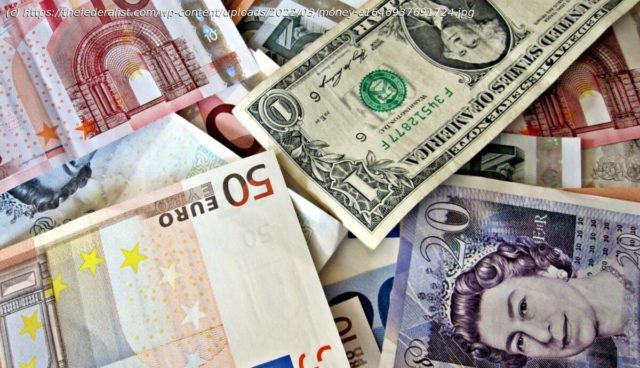The overuse of financial sanctions risks much of the world losing confidence in the dollar as the world’s reserve currency.
America cutting off Russia’s central bank from its U.S. dollar reserves could carry huge consequences that the D.C. establishment hasn’t considered. Here’s how the Wall Street Journal’s Jon Sindreu framed what happened: “After Moscow attacked Ukraine last week, the U.S. and its allies shut off the Russian central bank’s access to most of its $630 billion of foreign reserves. Weaponizing the monetary system against a Group-of-20 country will have lasting repercussions.” Reserves are globally accepted foreign currency that a foreign central bank holds to back and protect its own currency — the pound, the yen, and the euro are considered reserve currencies, but the primary reserve currency is the U.S. dollar. The dollar is the world’s reserve currency because a large amount of global commerce is priced in dollars, and the U.S. legal system and open capital markets mean American dollars can buy American assets while the owner is protected by the rule of law. This status as the world’s reserve currency gives Washington immense power, because at the end of the day all dollar transactions must undergo clearing and settlement (fancy words for transferring ownership then recording who owns dollars) at U.S. banks connected to the institution that controls the U.S. dollar, which is the U.S. Federal Reserve. That power from the global reserve status of the dollar allows America to sanction foreign countries even when they don’t do any trade with America, in part because foreign institutions — say, in Europe — trading with potentially rogue regimes desperately need access to this U.S. dollar system. Increasingly, America has upped its use of this sanctions power. The latest examples are with Iran under the Obama and Trump administrations, and Afghanistan under the Biden administration after the American-backed government in Kabul collapsed. Again, use of the dollar abroad can violate sanctions even if no American is involved in the transaction, because clearing and settlement occur on American soil.
Домой
United States
USA — Financial Why Cutting Russia Off From Global Banking Will Bite The United States






